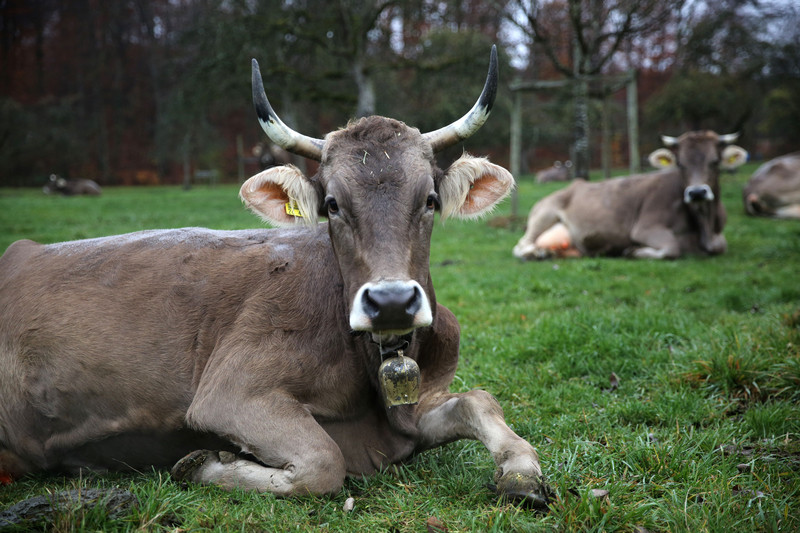New Study: Better Milk Quality thanks to Horns

Cows with horns have become a rare sight: The characteristic outgrowths are usually removed or hornless breeds are used straight away to reduce the risk of injury, and not just in conventional cattle farming. In biodynamic farming, on the other hand, horns are considered a key feature: they facilitate gestural communication and are an integral part of the animal’s individual personality. These are among the reasons why horns are mandatory in Demeter cattle farming.
Numerous field reports also suggest that, apart from animal welfare, horns may also be beneficial for the quality of the milk. For instance, consumers have repeatedly observed that milk from horned cows is particularly digestible. As part of the “HornMilch 2021” study, the KWALIS research institute investigated the influence of horns, feed composition and ambient temperature on the characteristics of the milk. The study, which was co-financed by SAGST and published in 2022, showed that both horns and feed consisting solely of hay have a favourable effect on the quality of the milk. Moreover, horned cows were more resilient to elevated temperatures – a useful discovery given climate change and expected hotter summer months. These results support the biodynamic approach, where horns are considered not merely a freak of nature but an important part of the whole organism – invaluable arguments when it comes to countering the now largely hornless cattle industry.
More information on the study:
Wohlers, J.; Stolz, P. The Importance of Cow-Individual Effects and Diet, Ambient Temperature, and Horn Status on Delayed Luminescence of Milk from Brown Swiss Dairy Cows. Dairy 2022, 3(3), 513-527; https://www.mdpi.com/2624-862X/3/3/37
Wohlers, J. Milch, Qualität und Hörner (Milk, Quality and Horns). Lebendige Erde, Juli/August 4-2022, p. 40-45.
